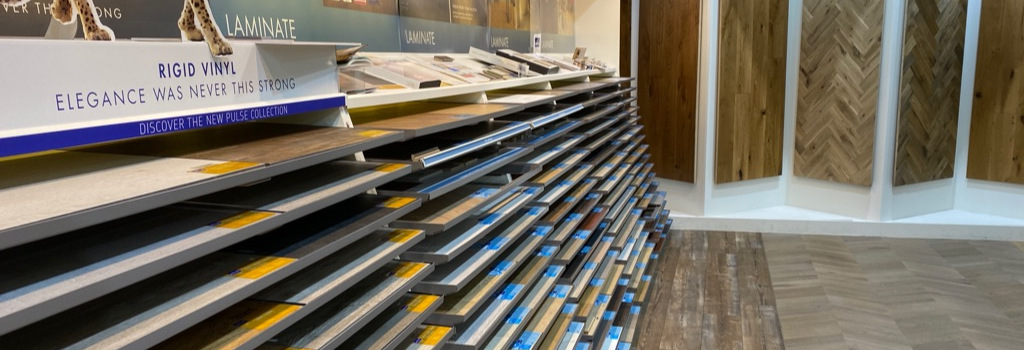Flooring Shop Subcontractor Insurance: Third-Party Installer Coverage
Running a flooring shop that relies on subcontractors and third-party installers requires specialized insurance protection. Understanding the unique risks and coverage needs is essential for protecting your business, reputation, and financial stability.
Understanding Flooring Shop Subcontractor Risks
Flooring shops that work with subcontractors face distinct challenges that standard business insurance may not adequately cover. When you engage third-party installers, you're extending your business operations beyond your direct control, creating potential liability gaps.
Key Risk Areas Include:
- Installation Quality Issues: Poor workmanship by subcontractors can damage your reputation
- Property Damage: Accidents during installation at customer premises
- Injury Claims: Workplace accidents involving subcontractor staff
- Incomplete Work: Projects left unfinished due to subcontractor issues
- Customer Disputes: Conflicts arising from subcontractor performance
Essential Coverage for Flooring Shop Subcontractors
Public Liability Insurance
Protects against claims for property damage or injury caused by your subcontractors during flooring installations. This coverage is crucial when installers are working in customers' homes or commercial premises.
Professional Indemnity Insurance
Covers claims arising from professional negligence, including poor advice, design flaws, or installation errors that result in financial loss for your customers.
Employers' Liability Insurance
Essential if you have any direct employees, this coverage protects against injury claims from your own staff who may work alongside subcontractors.
Product Liability Insurance
Protects against claims related to defective flooring materials or products that cause damage or injury after installation.
Subcontractor Default Insurance
Specialized coverage that protects against financial losses when subcontractors fail to complete work or perform to required standards.
Managing Third-Party Installer Risks
Vetting and Qualification Processes
Implement thorough screening procedures for all subcontractors, including:
- Verification of insurance coverage and policy limits
- Assessment of technical qualifications and certifications
- Review of previous work quality and customer references
- Financial stability checks
Contractual Protection
Ensure all subcontractor agreements include:
- Clear performance standards and quality requirements
- Insurance requirements and indemnity clauses
- Dispute resolution procedures
- Completion timelines and penalty clauses
Specialized Flooring Installation Considerations
Hardwood Flooring Installations
Require specialized skills and carry risks of moisture damage, subfloor issues, and precision cutting requirements that can impact surrounding structures.
Commercial Flooring Projects
Often involve larger-scale installations with higher value materials and stricter completion deadlines, increasing potential liability exposure.
Luxury Flooring Materials
High-value materials like natural stone or premium hardwoods require experienced installers and carry significant replacement costs if damaged.
Specialized Installations
Underfloor heating systems, moisture barriers, and acoustic underlays require specific expertise and carry unique liability risks.
Claims Prevention Strategies
Quality Control Measures
- Regular site inspections during installation
- Pre-installation surveys and documentation
- Customer sign-off procedures at key project stages
- Post-installation quality checks and warranties
Communication Protocols
- Clear customer communication about subcontractor arrangements
- Regular progress updates and issue reporting
- Documented change orders and approvals
- Customer feedback collection and response procedures
Industry-Specific Coverage Considerations
Seasonal Variations
Flooring installation demand often fluctuates seasonally, requiring flexible insurance arrangements that can accommodate varying subcontractor usage levels.
Geographic Coverage
Ensure your insurance covers subcontractor work across all areas where you operate, including any cross-border installations.
Equipment and Tool Coverage
Consider coverage for specialized flooring tools and equipment used by subcontractors on your projects.
Regulatory and Compliance Requirements
Stay informed about:
- Building regulations affecting flooring installations
- Health and safety requirements for installation work
- Environmental regulations for flooring materials
- Consumer protection laws affecting flooring sales and installation
Choosing the Right Insurance Partner
Select an insurance provider who understands the flooring industry and can offer:
- Tailored coverage for flooring shop operations
- Experience with subcontractor liability issues
- Competitive premiums for your risk profile
- Claims support and risk management guidance
- Flexible policy terms that adapt to your business needs


 0330 127 2333
0330 127 2333
